Djilba Festival 2025

Empowerment through Action, Innovation & Collaboration
5th & 6th August, 2025
Danjoo Koorliny is a large-scale, long-term, systems-change movement designed and led by Aboriginal people to help us all walk together towards 2029 (200 years of colonisation in Perth), and beyond. The leaders of Danjoo Koorliny are Dr Noel Nannup OAM, Dr Richard Walley OAM, and Carol Innes AM. Danjoo Koorliny works across the environmental, social, economic and cultural pillars.
The Djilba Summit focused on the economic and business pillar of Danjoo Koorliny and took place on August 5–6, 2025, at the University of Western Australia. It was a groundbreaking event that united Aboriginal leaders, investors, and industry innovators to create lasting change. It was a platform where traditional knowledge and modern innovation converged to drive economic and cultural transformation.
With structured speaker hubs, immersive cultural spaces, a business expo, and a closed-door investment platform, the Summit created space for the ideas, enterprises, and partnerships that shaped the next chapter of First Nations futures.
Why this Summit?
For decades, many First Nations summits had provided a forum for discussion; this one was aimed at tangible, measurable outcomes that communities needed. Barriers to economic inclusion, cultural sustainability, and technological access remained unresolved. The Danjoo Koorliny Summit was not another talkfest. The Summit was a launchpad for action, empowering Aboriginal entrepreneurs, protecting cultural heritage, and building long-term partnerships that transformed conversations into results.
THE SUMMIT PROGRAM
DAY 1 HUBS
Entrepreneurship & Economic Growth
Powering the growth of First Nations businesses through procurement access, capability uplift, capital connections, and strategic growth planning.
Young & Emerging Leaders
Activating the next generation of change-makers with bold ideas, leadership development, and innovation-driven approaches.
Creative & Cultural Industries
Showcasing culture and tourism as economic engines that amplify identity and create sustainable futures.
Data, Digital & Ethics
Protecting First Nations' rights in a digital world through ethical data use, digital inclusion, and the assertion of data sovereignty.
DAY 2 HUBS
Women’s Empowerment
Celebrating and supporting First Nations women leading in business, governance, advocacy, and intergenerational change.
Governance & Leadership
Redefining leadership through First Nations accountability frameworks and community-first decision-making.
Land-Based Economics
Unlocking the economic potential of First Nations' held land.
Investments and Capital
An opportunity for First Nations businesses connect to the capital, capability, and conversations needed to fuel growth, for businesses starting out or scaling up.
What Made This Programming Different?
Designed for Impact: The Summit programming was co-created through four dedicated workshops with changemakers and leaders who helped shape an agenda that ensures every session, panel, and presentation is tied to real-world outcomes.
Actionable Outcomes: Each hub and session is structured to provide participants with tools, frameworks, and pathways they can immediately apply within their communities and industries.
Focused Engagement: The Summit combines global case studies, hands-on innovation labs, and solution-oriented breakouts, ensuring attendees leave inspired and empowered to act.
Expectations of Speakers
Our speakers are selected not only for their expertise but also for their commitment to driving meaningful change. They are required to deliver actionable insights, share proven strategies, and provide attendees with practical resources. Every presentation must go beyond inspiration and lead to a clear, actionable next step, ensuring that participants leave the Summit equipped to make a difference.
Final Thoughts
The Danjoo Koorliny Summit bridged ancient knowledge and modern solutions creatin a pathway to a future where Aboriginal leaders shape Western Australia’s and the world’s economic and cultural landscape.
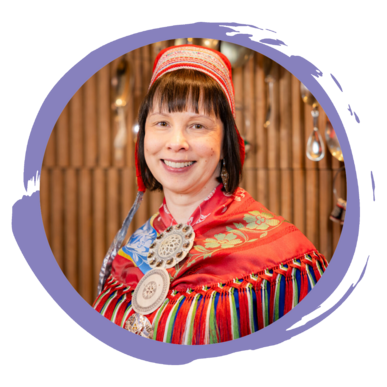
Pirita Näkkäläjärvi
Pirita Näkkäläjärvi is the President of the Sámi Parliament in Finland. She has a unique career combining Indigenous rights advocacy and global business. Before politics, Pirita had a long career in Strategy and Mergers and Acquisitions in EY, PwC, Nokia and Merrill Lynch. She also worked as the Editor of Sámi-language content at the Finnish Broadcasting Company Yle. Pirita is from a reindeer-herding and entrepreneurial family in Inari, Finland. She holds MSc Media and Communications from London School of Economics and MSc Economics from Helsinki School of Economics.
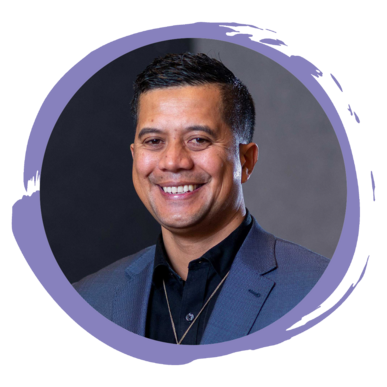
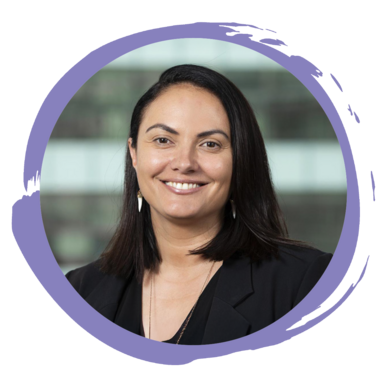
Kirikowhai Mikaere
Kirikowhai is a leading Māori data and information specialist focused on harnessing information to empower indigenous communities across Aotearoa New Zealand and the world. She has over 25 years’ experience advising Ministers, government agencies, tribal, community and private sector organisations with practical statistical analysis and innovative place based data solutions. With a bi-cultural education and upbringing, intensive technical training, and hands-on experience with diverse communities, Kirikowhai brings a unique perspective to development opportunities. She is currently the lead technical advisor to the National Iwi (Tribal) Chairs Forum - Data Leadership Group, and holds governance and advisory positions across the private sector and government, including with her tribe (Chair - Tūhourangi Tribal Authority, Trustee – Te Pumautanga o Te Arawa), and Indigenous Health provider Manaaki Ora Trust (Deputy Chair).
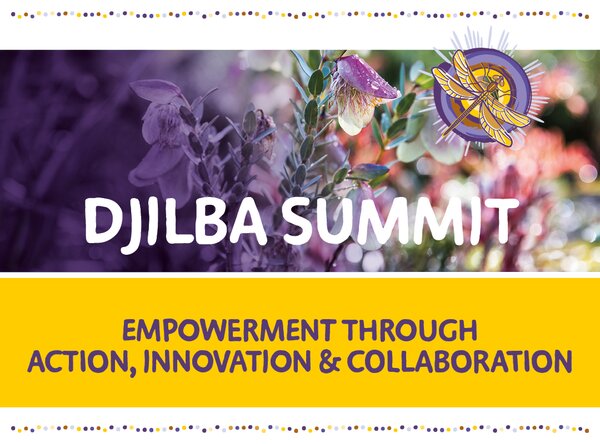
Tuesday 5th & Wednesday 6th August 2025
8:30am – 3:30pm
The University of Western Australia
35 Stirling Hwy, Crawley WA 6009
For decades, many First Nations summits have provided a forum for discussion, this one is aimed at tangible, measurable outcomes that communities need. Barriers to economic inclusion, cultural sustainability, and technological access remain unresolved. The Danjoo Koorliny Summit is not another talkfest. The Summit is a launchpad for action, empowering Aboriginal entrepreneurs, protecting cultural heritage, and building long-term partnerships that transform conversations into results.
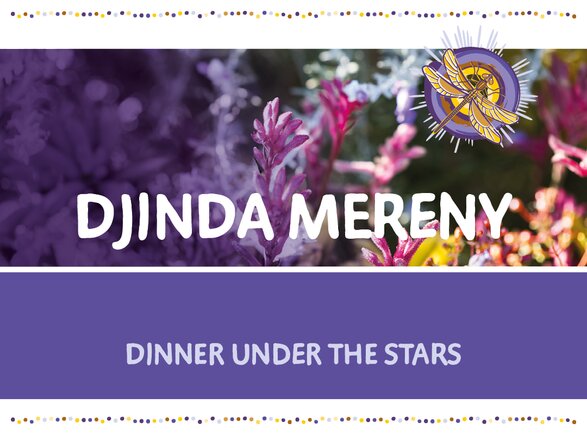
Wednesday 6th August 2025
6pm – 10pm
The University Club of Western Australia
Hackett Entrance, 1 Hackett Dr., Crawley WA 6009
We invite friends to unwind, dine and connect under the stars.
Djinda Mereny / Dinner Under the Stars offers an intimate dining experience, an evening of fine dining infused with local Western Australian ingredients, enhanced by a program of exciting art and culture performances.
Djinda Mereny is the perfect follow-up to the Djilba Social Impact Summit.
This is an alcohol-free event.
PARKING AT UWA IS STRICTLY LIMITED
Visitor Rates Parking
UWA uses the EasyPark app for managing parking, allowing you to start and stop your parking session using your phone.
Ride-Sharing Services
Uber, Didi and Ola are widely available in Perth. You can book a ride through their respective apps. The journey from the city center to UWA typically takes around 15-20 minutes, depending on traffic, and costs approximately AUD 15-25.
Public Transport
Several bus routes connect the city center to UWA.
Key routes include:
Purple CAT: A free bus service running between the UWA Business School and Elizabeth Quay Bus Station.
Route 950: Runs from Morley Bus Station to QEII Medical Centre via Perth City and UWA. Available on weekdays and weekends.
Route 102: Runs from Elizabeth Quay Bus Station to Cottesloe Station via Claremont Station, stopping at UWA.
Route 24: Runs from East Perth to Claremont Station via Kings Park Rd and Waratah Ave, stopping at UWA.
Train and Bus Combination: You can take a train to Subiaco Station and then catch the Route 97 bus to UWA.
Lorem ipsum dolor sit amet
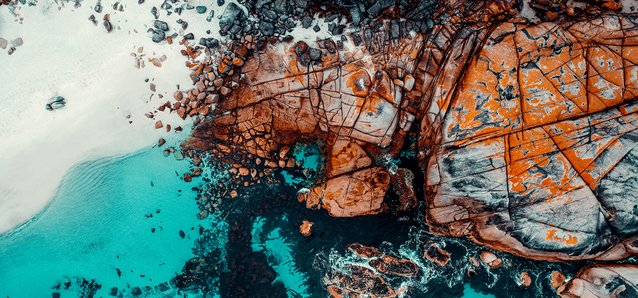
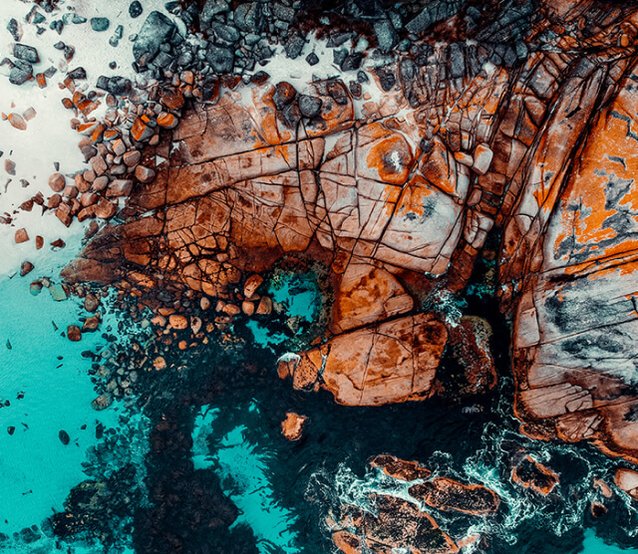
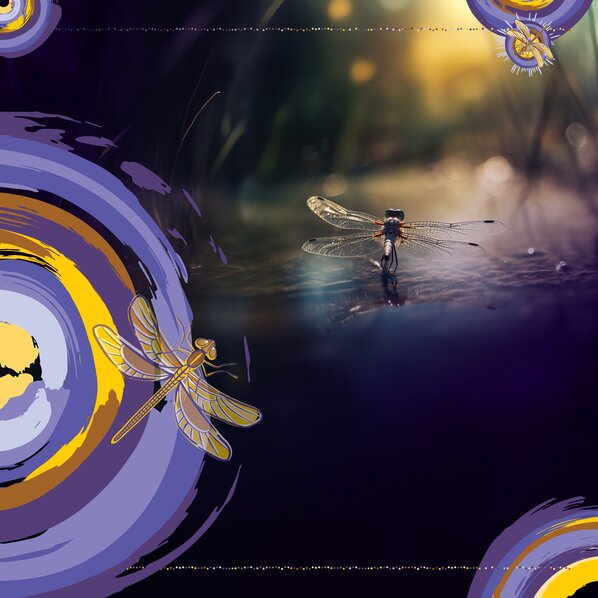
Why We Chose the Woordawort (Dragonfly) for the Djilba Summit
For the 2025 Djilba Summit, we chose the Woordawort (dragonfly), a powerful symbol and guiding totem. The Woordawort held deep cultural significance for Noongar people, representing transformation, adaptability, and spiritual connection — all qualities that aligned with the purpose and spirit of the gathering.
Djilba was a season of transition. It marked the shift from the cold rains of Makuru to the warming signs of new life — when the land began to stir, flowers bloomed, and young animals emerged. Like Djilba, the dragonfly embodied change and renewal, moving gracefully through different life stages and elements — air and water. This mirrored our journey as a community: navigating change, embracing growth, and staying connected to culture and Country.
The dragonfly’s close relationship with waterways and wetlands reminded us of the importance of preserving our life-giving environments and respecting the natural balance that sustained us. Its presence invited us to reflect on clarity, vision, and adaptability — qualities we strengthened as we came together to plan, share, and look forward.
With its shimmering wings and swift flight, the Woordawort also carried a spiritual essence in Noongar storytelling, seen as a messenger between worlds. It encouraged us to see with fresh eyes, move with purpose, and remain open to insight and deeper understanding.
In this way, the Woordawort was not just a symbol for the Summit — it was a guide, helping us move through this season of change with strength, grace, and unity.
Lorem ipsum dolor sit amet
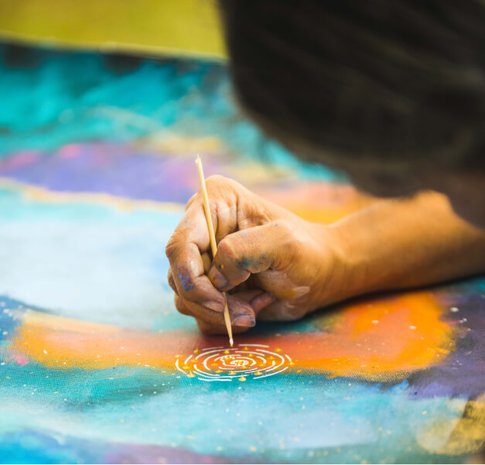
Professor Anne Poelina
Nulungu Institute Research University of Notre Dame
Professor Anne Poelina PhD, PhD, MEd, MPH&TM, MA, Nyikina Warawa Guardian Martuwarra Fitzroy River, Co-Chair of Indigenous Studies University Notre Dame, active community leader, human and earth rights advocate, and Peter Cullen Fellow. Laureate Women’s World Summit Foundation (Geneva, 2017) elected Chair of the Martuwarra Fitzroy River Council (2018).

Samantha Murray
A Yilka/Wongutha/Nyoongar/Yamatji woman who grew up in Cosmo Newberry ( where she has traditional owner links) and Laverton and has connections to the broader Central Desert Area.
Her Indigenous name is Imelia and Skin name Panaga.
She has previously been a Director of Yilka Aboriginal Corporation for over 3 years and is a currently a Director of Yilka Heritage and Land Care which deals with the land management programs and ranger team. Sam has worked in a range of other government-based roles in education, public housing and TAFE.
She has previously worked with Central Desert Native Title Services and Desert Support Services.
Samantha currently works as Deputy CEO – at the Indigenous Desert Alliance where she continues with her passionate commitment to supporting people and country of the Australian desert.

Michelle Andrews
An executive leader and environmental scientist with 30 years’ experience in the public sector currently in the role of Director General, Department of Water and Environmental Regulation.
Michelle has previously led the role of Director General for the Department of Communities and reformed the organisation’s governance and integrity systems following a major fraud and corruption incident.
Michelle has held executive roles within the Department of Premier and Cabinet, State Development and the former Department of Mines and Petroleum, where she focused on major projects, resource development policy and strengthening relationships across government, industry and the community.
She strongly supports taking action on Aboriginal outcomes and formed the Cultural Council at Communities to ensure appropriate guidance on these actions. At the Department of Water and Environmental Protection, Michelle is driving better engagement outcomes for Aboriginal and Indigenous people with her support for the department’s Reconciliation Action Plan and the Aboriginal Engagement Strategy.
As a senior executive, Michelle believes in the power of collective leadership and the development of individual leaders to create shared leadership capabilities within organisations.
When she has personal time out, Michelle is a keen walker and likes nothing better than pulling on a backpack and hiking trails in our great state.

Glen Kelly OAM
Glen is an Aboriginal man of the Wardandi Nyungar people of the South West of Western Australia. Glen is an Environmental Scientist and has almost 30 years of experience in Aboriginal affairs, native title, Aboriginal land management and community development at local, national and international levels.
Glen served as the Chief Executive Officer of the South West Aboriginal Land and Sea Council (SWALSC), the native title representative body for the South West of WA, for nearly a decade. Glen has also worked across Australia on native title agreement making and has assisted a variety of Traditional Owner groups and Government clients achieve strong and sustainable native title outcomes.
From 2015 to 2017 Glen also served as the Chief Executive of the National Native Title Council where he worked alongside members of the native title sector, Government and Industry to secure reforms to the Native Title Act. In 2019, Glen was awarded West Australian of the Year in the Indigenous category and was appointed as a Member of the National Native Title Tribunal in October 2020.
Lorem ipsum dolor sit amet
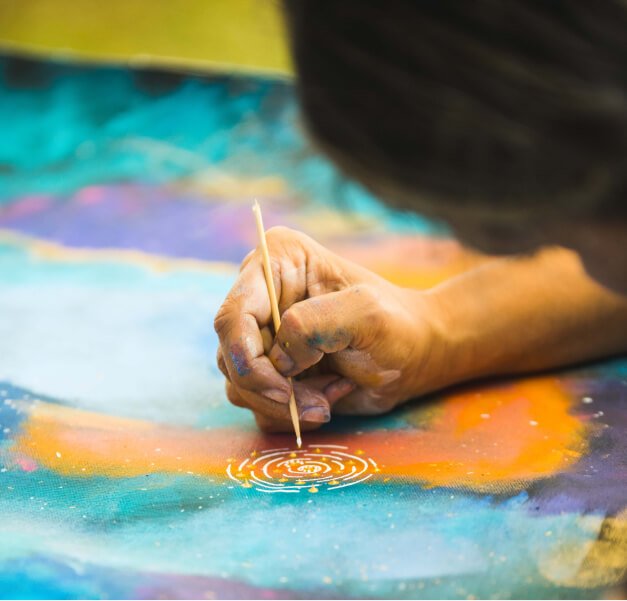
Professor Steven D. Hopper AC
Professor of Biodiversity, The University of Western Australia, Albany WA
Born in Bangalow NSW in 1951, and moving to Perth in 1965, today I am a field biologist, avid bibliophile, beach comber, photographer, part-time musician and family man. Previously, following PhD studies, I have worked in conservation research and management in the Western Australian Government (1977-1992), and been chief executive (Director) of two world-class botanic gardens (Kings Park WA 1992-2004, and Royal Botanic Gardens Kew, UK 2006-2012). I now work in a 0.6FTE appointment as Professor of Biodiversity at The University of Western Australia, Albany (2012 to present) and as a strategic consultant.
My research and teaching interests include specialist expertise in natural history, eucalypts, kangaroo paws, orchids, plants of granite outcrops, endangered plants, cross-cultural biodiversity research with Noongar Aboriginal people, old climatically-buffered infertile landscapes (Ocbils), pollination of plants by birds and mammals, and botanic garden management. I am an author of 338 scientific publications, 155 peer-reviewed, with 139 sole-authored, and 14 books and monographs. My field research has extended across Australia and New Zealand (since 1972), the USA (since 1990), South Africa (since 1997), and the UK and western Europe (since 2001).
I joined as Director the Royal Botanic Gardens Kew in London, a World Heritage tourist site and global plant science powerhouse of 800 staff, in 2006, and led the organization through celebrations of its 250th anniversary in 2009, before returning to UWA in 2012. As a CEO, Chief Scientist and manager, I have seen Kings Park and Botanic Garden and the Royal Botanic Gardens, Kew through substantial organizational change, without industrial disputation, in challenging economic circumstances, delivering much improved revenues and world-class improvements to services, facilities and science outputs in both cases.
Currently, I am focused on helping devise ways for people to live sustainably with biodiversity, especially on Ocbils, and in collaboration with Noongar people, postgraduate students and other scientists worldwide.
In 2012 I was inducted into the Western Australian Science Hall of Fame. I was also awarded Australia’s highest civilian honour of Companion of the Order of Australia (AC), for ’eminent service as a global science leader in the field of plant conservation biology, particularly in the delivery of world class research programs contributing to the conservation of endangered species and ecosystems’.

Lindsey Langford
Chief Executive Officer of the Indigenous Desert Alliance (IDA)
Lindsey is passionate about seeing positive and Indigenous directed outcomes for the desert and its people. He grew up in Central Australia and has had privilege of an intimate and lifelong association with Indigenous desert land managers on their country.
He has spent the past 15 years working primarily with Indigenous desert rangers to support the operational and strategic development of Indigenous Protected Area programs and ranger teams through to founding and developing the Indigenous Desert Alliance.


